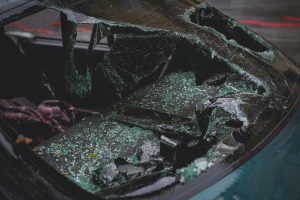
When you’re involved in an accident it can be very difficult to understand what is going on. You never expect to get into a situation such as this and it often happens in a split second. You probably think you know how you’d react, but the chances are that you really don’t. Here is what you should do.
Instantaneously
- Stop your vehicle immediately (not doing so is against the law)
- Turn off your engine
- Switch on your hazard lights
- Check for injuries on anyone in your vehicle including yourself
- Make a note of any injuries
- Call the police and ambulance instantly if there are any injuries or obstructions on the road.
- Try to remain as calm as possible, take deep breaths and understand the situation. Getting angry or stressed will only make the situation worse.
- Don’t accept responsibility or apologise unless you are certain it was your fault. Once you admit it was your fault you cannot take that back.
When to call the police
You should call the police if other parties leave the scene without giving you their details or if you think the other driver is under the influence of drink or drugs. If you believe the other party to have caused the collision on purpose then you should call the police and make a statement.
You must tell the police about an incident within 24 hours or you may be penalized. If you inform the law enforcement professional about a road accident on time, they can test the other driver for driving under influence and for drug intoxication. The vehicles could also be scanned for the presence of alcohol or drugs. In some cases, police might even bring in experts to do fentanyl testing in the California Bay Area or in other areas to detect fentanyl presence in the air and on vehicle surfaces. This whole process could help you charge the other driver for DUI and demand appropriate compensation for the accident and the losses it caused you.
Exchanging motoring details
It is the law for you to give your name and address to everybody involved with the incident if damage and/or injury ensued.
You should also swap insurance details and take down the details from any witnesses. Get details of any Lorries that were involved and make sure you take details from both the lorry and the trailer as the information can often be different.
Information you should record:
- Make, model, colour and number plates of all vehicles involved (pictures will do)
- Date and time of incident
- Driving conditions (weather, lighting, road quality)
- Exact damage details
- Injuries to drivers, passengers and pedestrians
- Name and contact details of witnesses
- Take a lot of pictures of the scene (your phone camera will do)
Reach out to your attorney or lawyer
After acquiring all the necessary data with regard to the accident, you’d want to reach out to your attorney to relay the information. This is an important step to take, especially when you have insurance to claim. An auto, motorcycle, truck or catastrophic injury attorney will make preparations according to the details of the incident to assist you in presenting your case in court or to the insurance company.
Making a claim to your insurance provider
Get in touch with your insurance completely as soon as possible. The best time you can call is at the time of the incident. This is what they’ll ask you for:
- Your policy number or information to identify you
- Registrations of the vehicles involved
- Drivers name, address and phone number
- Their insurance details.








